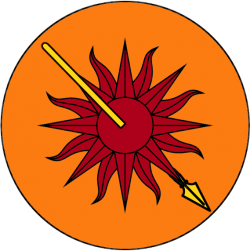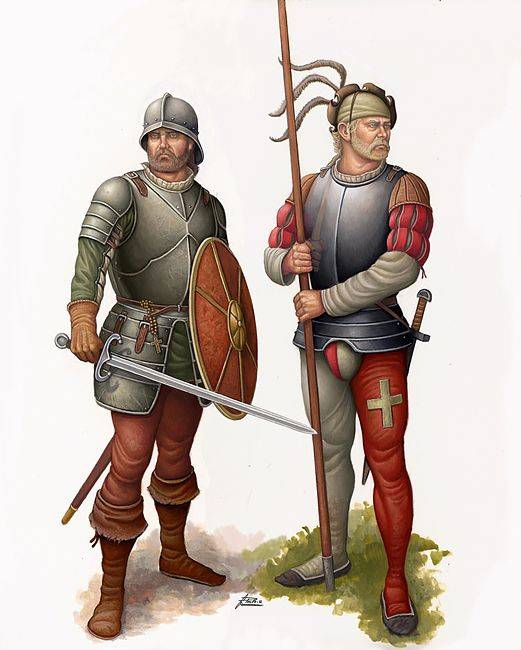
Nekhur
Tervain, Nekhur
From the balcony one could see the ruins of the River Palace, a vast and ostentatious display of elven and human architecture. It had once been the centre of the city, lording over its isle at the western end. Now little remained of its splendour. It had not been sacked during the siege, no, Imirian VIII had surrendered Varla before Nekhur's army had even started digging trenches. It had been demolished and ransacked as a message: that Tervain had fallen, and that all who refused Nekhur's ultimatums would suffer such a fate.
The court had moved to the older palace on the northern shores of Varla, nestled upon a hill. It had been refurbished some centuries ago, with new elven sections added, but the squalid and basic fortress at its centre remained. A perfect prison for a crownless king.
Mnesus moved back inside, ducking his head to get through. The doorways had not been designed for Kisharites. He made his way down the stairs, and entered the central room. It fit the criterion for a throne room, though it lacked the most important part: a throne. Mnesus had arrived in Varla to find Imirian lording over the nobles and Nekhur's own generals from a silver throne, a relic of old Erdelon. It had been melted down immediately, its silver going towards the war effort. Imirian had protested, so Mnesus had found him a wooden stool. Further public outbursts saw the king relegated to his chambers for the month.
It had been a peaceful month, but now Imirian had returned to tarnish the stool with the royal posterior. His robes were modest, Mnesus gathered most of his belongings had been taken during the sack of the River Palace, or servants had been stealing the rest. No crown or circlet adorned his head, another casualty of this war. The table supporting the map, around which generals of numerous nations and races were gathered, had been set up some way away from the king. Only a few Tervine nobles surrounded him, unaware of the otherworldly parasites within their brains.
"Lord Mnesus, no word from Khosrov at this time." Said Amar-Sin, a bald Kisharite general from the old aristocracy.
Mnesus nodded, and observed the map.

Khosrov's figure was nearing Folven, the first step to Monroyel. He had command of 30,000 soldiers. A mixed bunch drawn from across the empire, with Relyan archer corps and several war-bred Keratadons. A fearsome force by itself, but it was merely the vanguard. Yarim-Lim was in Rayen, with the remnants of his army. The Duke of Durheyn had won a surprise victory, enough to rouse interest in the rebellion at home and abroad. Irhamuwa had departed south with a small force of 5,000 to lay siege to Durheyn's keep. Would the old duke stand by his princess, even if it meant his lands would burn? Yes, but it would serve as a message to other Southron lords thinking of defecting.
Then there was the issue of neighbours. Aemia was like to stay quiet, hoping to remain forgotten. Gin Molduhr and Paluva had no love for Tervain, diplomats would soon be sent to placate and win them over. Tervain's fate would lie in the response from the big three: Serebyan, Valamir, and the Ironmark. It was the latter who could disrupt his plans the most. Serebyan was ruled by intelligent but cruel dukes, who would let their rivals do the bleeding, all the better for reaping the rewards in the anarchy afterwards. Valamir's king now had a personal stake in the war, with the death of his eldest son, but faced threats within and without.
The Ironmark, though, sat as the defender of the Southern Realms. A charge long forgotten by even the rump state of Severa, but not the proud Horse-Lords. It was the basis of their ownership of the Mark, of their protection of the Halflings and Dwarves, of their preeminence amongst the Southern Realms. A haughty and rough people, but skilled in war and horsemanship alike. The question was not whether they would intervene, but how quickly. Once mobilised, they would likely be entering Tervain by the time information reached Varla. Would they take the roads through Chaon or Venant, or pass through the Irongate and move immediately to Monroyel's aid?
"Inform Khosrov he is to give no quarter. If Folven does not surrender, it is to burn to the ground, the entire population to be made slaves and moved to Kishar. This will be the fate of any rebel settlements." Mnesus said, Amar-Sin quickly noting down the message.
A few thousand Balorenes were in Tervain, ravaging rebel-held settlements. They were a scattered and disorganised force, easily defeated in pitched battle, but a constant menace if all their war-parties were left unchecked. More gathered in Arugal. Mnesus had little control over them and their chieftain, as soon as word reached them of any Athedain forces entering Tervain, they would likely seek a chance to reclaim their homeland. Perhaps it would be wise to reach out to the Red Orc clans? Many of them harboured resentment against the Horsemasters, who had, with others, thrown them out of their new conquests. He would wait, once unleashed they could not easily be pulled back, and much of the Southern Realms bore hatred for them. This war was for now minor, best it kept that way for as long as possible.
He stared at Monroyel. It was the reason he had travelled down south, and now it was out of his hands. Everything would be sent to get it back. Men, elves, orcs, and goblins. Dogs of war, and the savage lizard-folk. Great beasts and otherworldly horrors. And if all else failed, he would take to the field. His ally had promised him help, and os he would take it if needs be.
First Monroyel, and then the world.



















